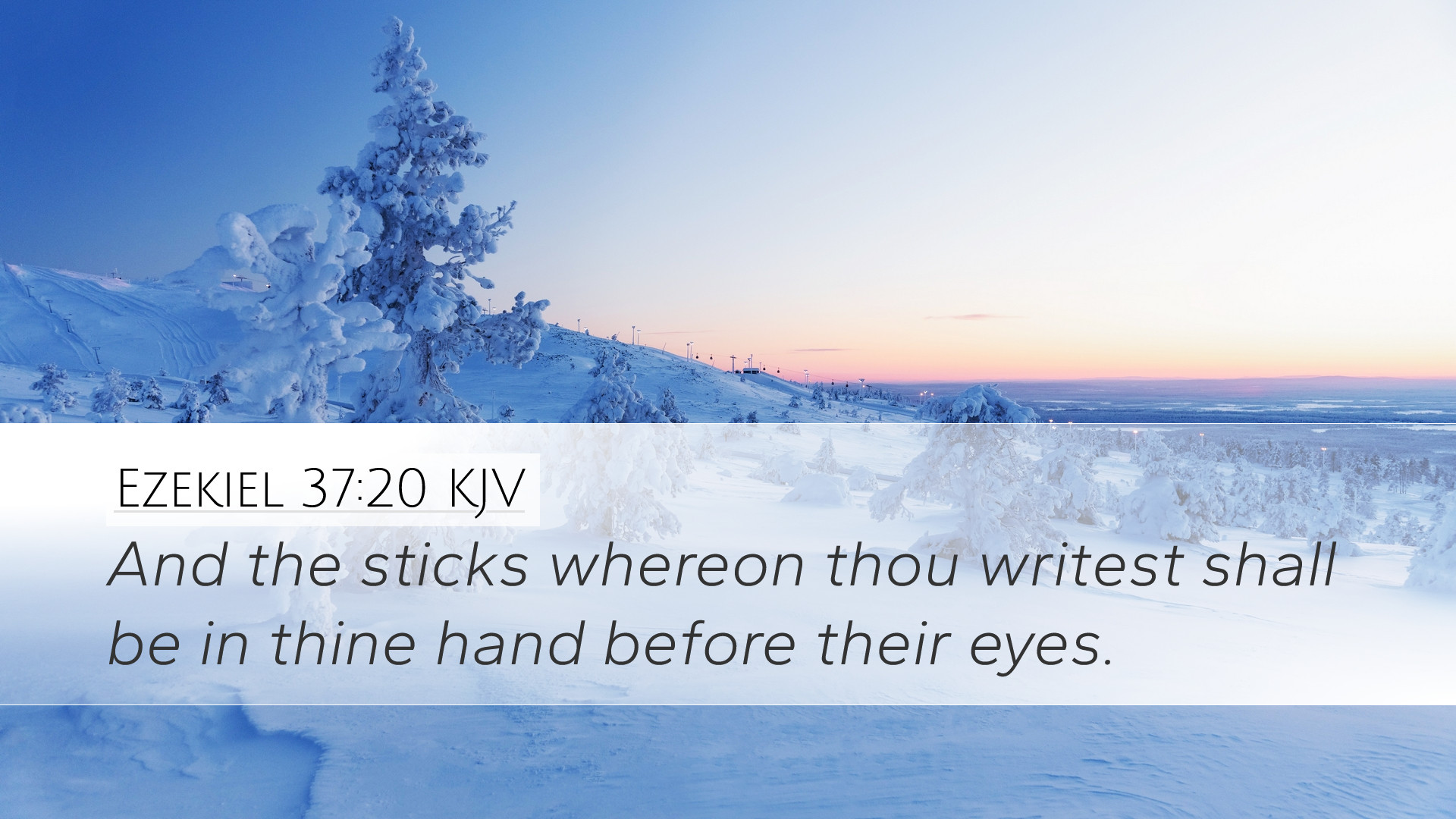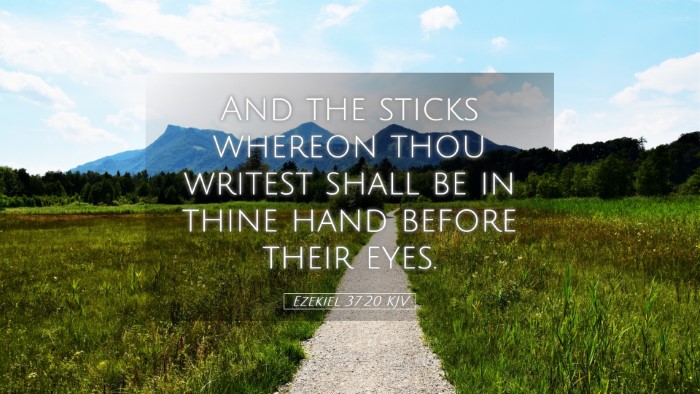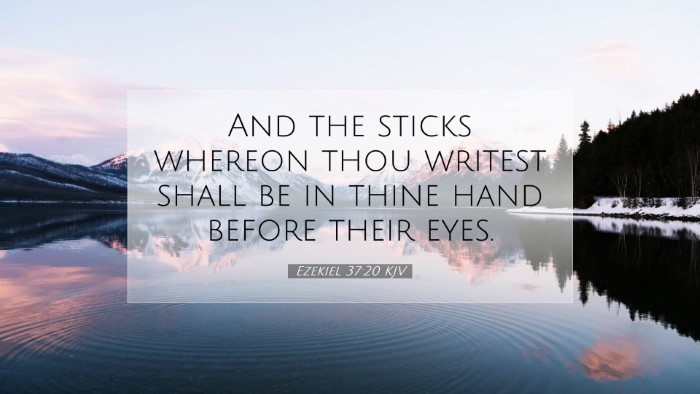Commentary on Ezekiel 37:20
Bible Verse: Ezekiel 37:20 - “And the sticks whereon thou writest shall be in thine hand before their eyes.”
Contextual Background
Ezekiel 37 is a pivotal chapter in the book of Ezekiel, depicting the restoration of Israel through the vivid imagery of dry bones coming to life and the unification of two sticks. This vision emphasizes God's power to restore and revive His people, showcasing the promise of renewal and hope in the face of despair.
Verse Significance
This verse serves as a significant transition point in the passage, marking the moment where the prophet Ezekiel is instructed to use physical symbols to convey the profound spiritual truth about Israel's restoration. The sticks symbolize Israel's divided kingdoms—Judah and Israel—and highlight God’s intention to reunify His people.
Commentary Insights
-
Matthew Henry:
Henry emphasizes that the act of writing on the sticks represents the covenant and the promise that God has over Israel. It serves to remind the people that despite their division, God has not forgotten them. The sticks symbolize not just the physical presence of the tribes but also the spiritual unity that God desires for His people.
-
Albert Barnes:
Barnes points out that the act of holding the sticks before the people is a symbolic gesture meant to draw attention to God’s plan. It serves as a visual representation of a prophetic message that illustrates both the current state of disarray and God’s future intention for unity and restoration among His people.
-
Adam Clarke:
Clarke reflects on the prophetic nature of Ezekiel’s actions, indicating that this act of writing on the sticks signifies more than mere instruction; it embodies a living prophecy that demands recognition from the people. The sticks themselves become a tangible message that can evoke faith and hope in the hearts of the Israelites.
Theological Implications
This text raises profound theological implications about God's sovereignty and His redemptive plans for His people. The visual demonstration of God’s promises through Ezekiel aligns with biblical principles of communication wherein God often utilizes symbols, visions, and tangible representations to impart divine truths.
Restoration and Unity
Ezekiel's vision of the sticks is a powerful metaphor for God’s restorative mission. The reunification of the two sticks serves as an illustration of the greater theological truth regarding unity within the body of Christ, as seen in the New Testament. It underscores the belief that God desires to heal divisions and restore harmony among His people.
Faith and Action
Additionally, this passage invites reflection on the relationship between faith and action. The act of holding the sticks symbolically demands active participation from the people—it is not enough to simply acknowledge God's promises; they must also engage with them actively, fostering a community that reflects God's intentions.
Practical Applications
For pastors, students, and theologians, Ezekiel 37:20 serves as a reminder to seek ways to visually articulate God’s promises in their ministries. Consider the following points for practical application:
- Symbolism in Ministry: Explore how symbols and tangible actions can be utilized to communicate God’s truth effectively.
- Encouraging Restoration: Foster an environment that promotes unity and healing among congregations and communities, drawing from the example set in this passage.
- Active Faith: Encourage believers to not only profess faith but to embody it through actions that align with God’s redemptive work.
- Hope and Renewal: Preach the message of hope that resonates with the themes of restoration and renewal found in Ezekiel, reassuring congregants that God is in the business of bringing life to what was once dead.
- Reflect on God’s Faithfulness: Encourage congregants to reflect on their own lives and the areas where they need God’s revival, reminding them of His unfailing promises.
Conclusion
The message contained within Ezekiel 37:20 is one of profound significance, representing God's unwavering commitment to restore and unify His people. Through the insights gleaned from these public domain commentaries, we are reminded of our role in embodying this truth in both personal and communal contexts. Let this verse inspire a movement towards reconciliation, hope, and active faith within our churches and communities.


